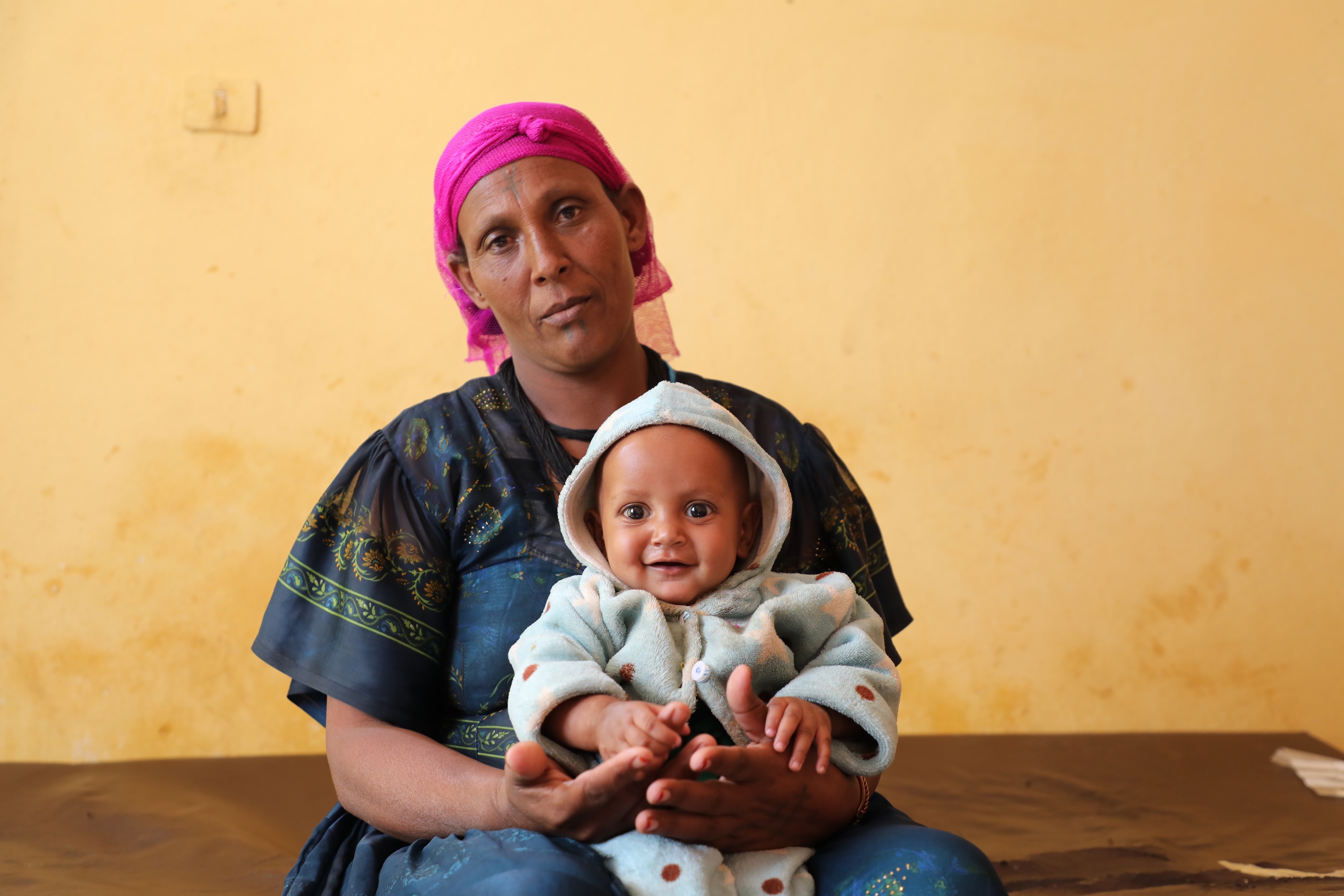Surviving Against the Odds: Lemlem’s Story of Hope
"I had almost lost hope. I thought I was going to lose my baby." These are the words of Gember, a mother who walked for three hours, carrying her drained 8-month-old daughter, Lemlem, on a desperate journey to find help.
Gember's family, like so many others in the Tigray region, was caught in a devastating cycle of conflict and drought. The conflict in northern Ethiopia had ravaged their farmland, leaving them with nothing. Three years after the fighting stopped, the battle for survival continued. Food was scarce, and hope was even scarcer. "After I gave birth, I was unable to breastfeed my child because my breasts were dry," Gember recalls. Lemlem's health quickly deteriorated, her small abdomen was itchy, and her breathing was laboured. The situation felt so hopeless that some neighbours advised Gember not to even bother seeking medical care, believing the baby had no chance of survival.
But this mother's heart refused to give up. "Though I was disheartened," Gember says, "my heart told me not to lose hope in her." With that spark of determination, she wrapped her fragile baby close and walked three hours on foot to the nearest health facility, the Selewa Health Centre. There, Lemlem was admitted into the stabilisation centre supported by World Vision Ethiopia through the Joint Emergency Operation Programme (JEOP), funded by the U.S. Government.
Mulu, a Nurse at the Health Centre, remembers the moment vividly, “When Lemlem was admitted, she was critically ill, suffering from severe acute malnutrition, third-degree edema with almost no appetite, a life-threatening condition. We immediately began therapeutic feeding and medical treatment.”
For two weeks, the medical team worked tirelessly, feeding Lemlem therapeutic milk, monitoring her around the clock, and counselling Gember on how to care for her daughter. World Vision also provided meals for Gember herself, ensuring she had the strength to remain by her child’s side.
“It helped me focus fully on my child’s recovery,” Gember said. It gave me hope.”
After just two weeks of care, Lemlem got much better. The swelling in her body went down, she started eating well again, and she began to put on weight. Even the size of her arm, which the doctors checked to see how healthy she was, showed that she was getting stronger. Things were finally looking up for Lemlem.
 "The support gave life to my daughter," Gember says, her voice filled with joy. "She is now fully recovered, laughing and playing. I am very happy."
"The support gave life to my daughter," Gember says, her voice filled with joy. "She is now fully recovered, laughing and playing. I am very happy."
As she prepared for the journey back home, the contrast in Lemlem was stark. "When I left my village looking for health support, I brought a child who was on the edge of death," Gember reflects. "But now, I am going to return with a child full of health and a smile."
Gember and Lemlem's story is proof of the impact of timely humanitarian aid, implying that even in the face of overwhelming hardship, a mother's love and the support of others can bring hope and healing.
By Daniel Kefela, Humanitarian Policy and Advocacy Advisor, World Vision International